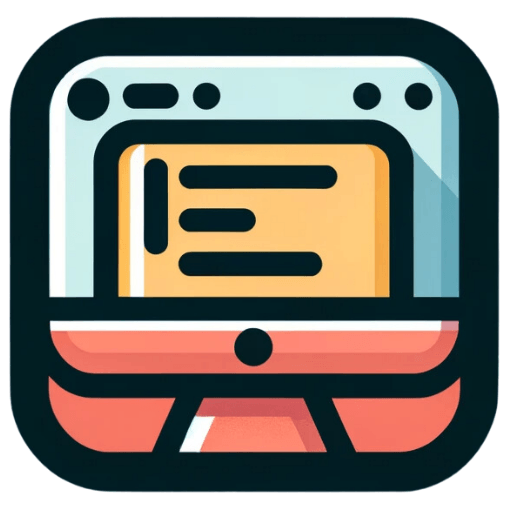How Do You Adapt to a New Framework Or Library?
In the ever-evolving landscape of web development, adaptation is key, as demonstrated by a Founder & CEO who saw performance improvements after switching to Vue.js. Alongside expert insights, we've gathered additional answers that highlight various strategies and experiences from the community. These range from leveraging official documentation to engaging in community forums, painting a full picture of the adaptability required in front-end development.
- Switching to Vue.js Improves Performance
- Learn From Official Documentation
- Start With a Manageable Project
- Contribute to Open-Source Projects
- Observe Expert Developer Sessions
- Engage in Community Forums
Switching to Vue.js Improves Performance
It is essential to adapt to new front-end frameworks in the face of changing project requirements and to leverage new technology to improve performance and provide a better user experience. A thoughtful approach to adopting technology makes it less risky and helps deliver better project outcomes.
When we needed to improve performance and achieve a more modern user interface, we had to switch from AngularJS to Vue.js. The decision was driven by Vue.js's incremental adaptability and its lighter learning curve (less radical for a team with hands-on experience in alpha releases of Angular and Ember).
Adaptation Process: This usually entails a significant amount of training and incremental project 'deployments' before full-scale use. At LunarWP, for example, we tend to initiate pilots for our developers, which serve as 'dress rehearsals' for the real-world deployment of new technology. In this way, incremental pilots can expose the kinks and keep any disasters contained before more sensitive projects or larger customer deployments.
How did the change impact the Project? The shift to Vue.js not only improved the speed of the project but also sped up feature development time. The simplicity of the framework, as well as its flexibility, made developing new features a simpler task. Ultimately, this led to faster and smoother project turnaround times and increased satisfaction from clients.
Takeaway - Install new technology carefully. Get the training and support needed. Start with one or two processes and pilot to understand the impact, then add more as your team becomes comfortable with the technology.

Learn From Official Documentation
Beginning the journey of learning a new framework or library often starts at the base, which is sifting through the official documentation and tutorials provided by the creators. This offers an authentic and accurate foundation of knowledge straight from the source, ensuring that learners grasp the core concepts and features as intended by the developers. It further assists in understanding the philosophy behind the framework's design and the community's best practices.
Tutorials might also offer step-by-step guidance for basic implementations, giving a structured learning path that can be valuable for newcomers. After gaining preliminary knowledge, dive into making something with what you've learned to solidify your understanding.
Start With a Manageable Project
Taking the approach of actual implementation, one effective way to adapt to a new framework or library is to begin with a small, manageable project. By doing so, individuals can focus on the practical application of the framework's functionality without the overwhelming complexity of a full-scale project. This project acts as a sandbox where learning from mistakes is encouraged and the pressure of perfection is reduced.
Additionally, the sense of achievement from a completed project, no matter how small, can be a significant motivational boost. Start planning a mini project today to practice the new framework and see firsthand how it can work for you.
Contribute to Open-Source Projects
Engaging with a community of developers through contributing to open-source projects can be a rewarding way to adapt to a new framework or library. Working on these projects allows individuals not only to apply their knowledge but also to observe and learn from the code written by more experienced peers. The collaborative environment of open-source also invites constructive feedback that can accelerate the learning process.
As these projects often come with an existing user base, individuals also get the chance to see how their contributions affect real-world applications. Take the leap and find an open-source project that interests you; your contributions will help both your growth and the project's success.
Observe Expert Developer Sessions
Observing experts can vastly accelerate the learning curve when adapting to a new framework or library. By watching coding sessions, live streams, or webinars, individuals get the opportunity to see the tools in action and pick up on the nuances of their use that documentation alone may not convey. Expert developers often share insights into problem-solving and efficient coding practices that are invaluable.
These sessions can also highlight the latest trends and updates within the framework's community. Find an expert session that resonates with you and observe how the pros do it; it could drastically reduce your learning time and enhance your skills.
Engage in Community Forums
Participating in community forums and asking questions opens up a dialogue with other learners and experienced developers, which can substantially aid in adapting to a new framework or library. These forums are a treasure trove of information where one can find solutions to common (and uncommon) problems, learn from others' experiences, and get tips on best practices.
Engaging with the community not only helps solve specific issues but also keeps one updated on the evolving landscape of the framework. Jump into community forums, start connecting with peers, and don't hesitate to ask even the simplest of questions; every query answered brings you closer to mastery.

